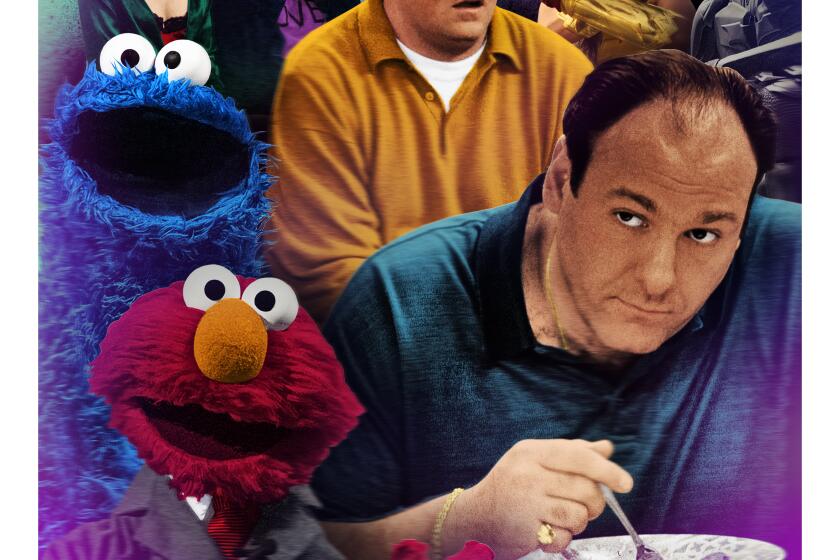AT&T’s WarnerMedia begins new round of layoffs amid reorganization
- Share via
WarnerMedia is being hit with deep job cuts this week as Chief Executive Jason Kilar makes sweeping changes to the AT&T-owned entertainment company.
More than 1,000 people are expected to be laid off in the latest round of staff reductions at the New York-based media giant, according to people familiar with the matter who were not authorized to comment. The cuts will hit 5% to 7% of staff, meaning 1,250 to 1,750 people. WarnerMedia currently employs about 25,000, the sources said.
WarnerMedia did not confirm how many jobs are being cut or share details about which departments would be most heavily hit, but the layoffs are expected to be wide-ranging.
Kilar informed staff of the coming layoffs in an early morning memo, saying the company would reveal which jobs in North America would be affected starting Tuesday. He said the company is continuing to review changes in its non-U.S. businesses, and the timing of those moves will depend on local government regulations.
“Today, we have arrived at a number of difficult decisions that are resulting in a smaller WarnerMedia team,” Kilar said in the email. “Nothing about this is easy. But please know, these reductions are not in any way a reflection of the quality of the team members impacted, nor their work. It is simply a function of the changes I believe we must make in order to best serve customers.”
Job losses were expected. The cuts come after WarnerMedia in August shed about 600 workers, primarily from its Burbank-based Warner Bros. studio, known for “Wonder Woman,” “The Big Bang Theory” and the Harry Potter movie franchise. Departing high-level studio executives in that round included Warner Bros. motion picture distribution chief Ron Sanders, worldwide television distribution chief Jeffrey Schlesinger and Chief Financial Officer Kim Williams.
The corporate upheaval continued in October as TV chairman Peter Roth announced his retirement after more than two decades at the studio. He will be replaced by Channing Dungey, a former Netflix and ABC executive, who will take over as chairman of Warner Bros. Television early next year.
The Times and other outlets last month reported that WarnerMedia was looking for additional cost savings amid the COVID-19 pandemic that has upended entertainment since March.
What is HBO Max? Video-on-demand service has HBO originals, Warner Bros. shows and movies
The company — known for storied brands including the Warner Bros. film and TV studio, HBO and TV networks such as TBS and CNN — is hemorrhaging jobs as it reorganizes itself to stay competitive in the streaming era of entertainment.
Kilar, formerly head of streaming service Hulu, became WarnerMedia’s CEO in May, replacing John Stankey, who was promoted to CEO of AT&T. The Dallas-based telecommunications firm acquired the assets of Time Warner Inc. and rebranded them as WarnerMedia in 2018, after a protracted battle with U.S. antitrust regulators.
Since then, the company has made major changes to its corporate structure and ousted well-known media veterans. In August, WarnerMedia removed two top TV programmers: Bob Greenblatt and Kevin Reilly.
WarnerMedia has placed a high priority on its new streaming service HBO Max, which launched in May.
The service, which costs $15 a month for subscribers, got off to a tepid start in terms of subscriptions. Its price point is higher than competitors including Walt Disney Co.’s Disney+ and Netflix. AT&T in October said it had added 8.6 million HBO Max subscribers since its launch, in a sign that the offering is building some momentum. HBO and HBO Max now have a combined 38 million subscribers in the U.S.
WarnerMedia is trying to adapt to dramatic changes in the media and entertainment industry that have been accelerated by the COVID-19 pandemic. Those trends, which have played out across the industry, include a reduced emphasis on theatrical films and traditional cable networks and an increased reliance on direct-to-consumer services.
The pandemic, which is surging in the U.S., has kept half of the nation’s movie theaters closed, forcing studios to delay their big films to 2021 or move them to streaming services. Warner Bros.’s superhero sequel “Wonder Woman 1984” is still planned for a Christmas theatrical release, but its position is precarious without cinemas open in Los Angeles and New York.
The coronavirus has also made it both difficult and expensive for film and TV sets to resume production, due to strict health and safety protocols in place.
Disney has cut tens of thousands of jobs in recent months, including 28,000 parks, experiences and consumer products workers, as Disneyland Resort in Anaheim remains closed and attendance at Walt Disney World in Florida lags. Burbank-based Disney has also shed 500 jobs from sports cable giant ESPN and eliminated several hundred open positions from its film studio. Santa Monica-based Lionsgate last week cut 15% of its 450-person film unit.
WarnerMedia will hold an all-hands meeting Wednesday to give more information to employees. Kilar said in his note that impacted employees will receive severance and healthcare packages and have access to “professional services and team member assistance programs.”
“To our colleagues who are leaving, I wish there were words to lessen today’s pain. Your contributions are a permanent part of this great company and today’s news does not change that,” Kilar wrote. “I am extremely thankful for all that you have done for this team and this mission. I hope that at some point you will look back on all of it with immense pride.”
More to Read
Inside the business of entertainment
The Wide Shot brings you news, analysis and insights on everything from streaming wars to production — and what it all means for the future.
You may occasionally receive promotional content from the Los Angeles Times.












